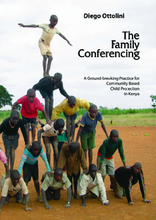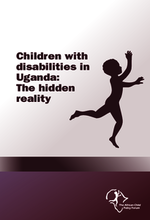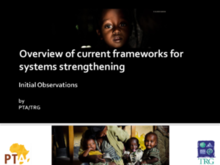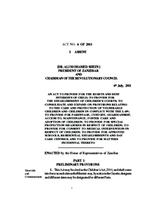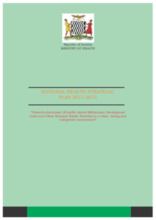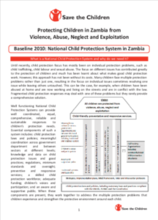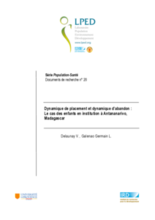Displaying 1391 - 1400 of 1627
This paper shows how OVC community responses in Northern Uganda are under severe pressure from a range of factors; but how these community initiatives are not collapsing – as the ‘social rupture’ thesis predicts.
A retrospective exploratory study on 73 family group decision making conferences for children referred to institutional public services in Kenya to investigate the short, medium and long term conference outcomes on child’s safety, permanency and wellbeing.
This is a retrospective exploratory study looking at 73 family group decision-making conferences for chidlren referred to institutional public services in Kenya.
Children with disabilities in Africa are among the most neglected groups in the policy domain as well as in the private sphere. The majority of these children face enormous economic, political, and social barriers that have an adverse impact on their physical, social and intellectual development and wellbeing.
This presentation provides an overview of approaches and frameworks utilized to strengthen child protection systems in Africa.
This brief presents the results of the mid-term evaluation of the New Generation project - a three-year project comprised of two components: 1) A VSLA intervention involving the establishment of Village Savings and Loan Associations (VSLAs) and th
This Act was established by the Government of Zanzibar to provide for the rights and best interests of the child and to ensure the protection, rights, and care of the child.
This document is the National Health Strategic Plan 2011 to 2015 (NHSP 2011-15) for Zambia.
This fact sheet by Save the Children provides an overview of the current status of national child protection systems in Zambia.
La question de l’abandon d’enfant est une question majeure et récurrente dans le monde. Nous l’abordons ici à travers la question du placement d’enfants en institution, qui constitue une réponse particulière à l’abandon d’enfant et nous interrogeons les dynamiques en œuvre.


